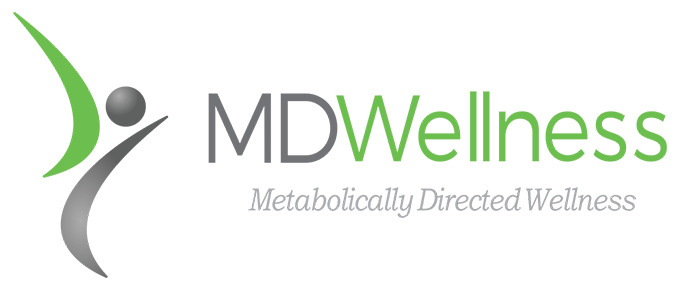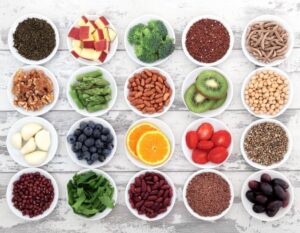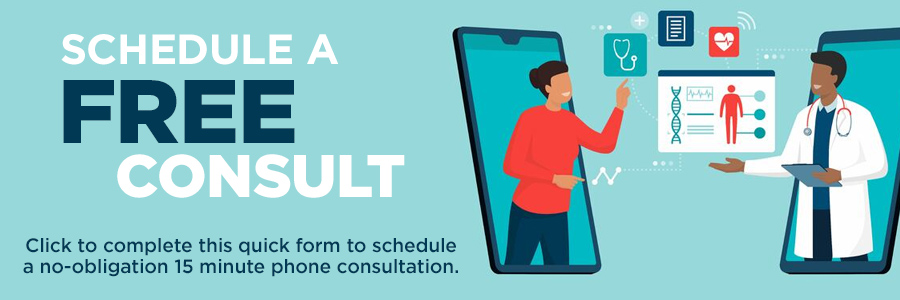Plant-based eating is officially a mainstream movement. According to a study by Good Food Institute and the Plant-Based Foods Association, one-third of consumers are choosing to reduce their meat consumption. U.S. retail sales of plant-based foods significantly outpaced overall grocery sales in the past year, surging 11% to $4.5 billion in 2019. Marketers have all jumped on board the newest health trend and we are seeing everything from plant-based milks, butters, and even fast food vegetarian burgers. This begs the question, why are consumers so eager to go green?
Is it Healthier to be a Vegetarian?
Social media influencers modeling the latest ethical, eco-friendly, cruelty-free, hand-printed vegan clothing and promoting their plant-based diets may look glamorous and healthy, but I urge you to weed through the misinformation and discover what is Instagram versus Reality. The biggest myth out in the public is that a vegetable-based diet that restricts meat is the way to go. You are unknowingly directed throughout your life to assume that vegetables are more beneficial for your body than meat. The food pyramid dictates that you should have 6-11 servings of carbohydrates each day, 5-7 servings of fruit and vegetables a day compared to 2 servings of meat, poultry, fish, eggs, beans, nuts, etc. Much scientific data is not supporting this high carbohydrate, low-fat diet. The FDA approved diet recommends 70% or more of calories coming from carbohydrates and less than 20% of calories from fat. There is nothing wrong with carbohydrates and vegetables. However, a more metabolically directed version of a healthy food pyramid would have saturated fat as the basis of your diet with 45-70% of your daily caloric intake, limit carbohydrate intake to less than 30% of total calories and completely eliminate sugars, processed foods, trans fats, and oils like canola, soybean, and corn, that contain polyunsaturated fatty acids (PUFA).
Is The “Fake” Burger a Healthy Alternative?
Firstly, why would you want to eat a fake burger? Does it taste better? Does it make you feel better? While vegetarian burgers have come a long way, I stand by my assessment that it would be Impossible for me to choose a plant-based, PUFA laden burger over an organic, grass-fed hamburger full of saturated fat and cholesterol. The new wave of plant-based burgers is made largely of pea protein, which is not bad per se. The problem is the bad fats (canola -PUFA) these burgers are made from.
Why are Vegetable Oils (PUFA) so Unhealthy?
Plant-based fats such as canola, corn, soy and sunflower oil are extremely poisonous. These products are mostly unsaturated fats (which means they contain double carbon bonds). These double bonds are very fragile and are highly metabolically active.
The double bonds of the PUFA are incorporated into molecules known as eicosanoids, which are the precursors of pro-inflammatory prostaglandins. To make matters worse, the double bonds in the PUFA create enormous amounts of oxidative stress, depleting your anti-oxidant reserves and therefore stressing your adrenals to respond by producing high levels of cortisol. In a nutshell, vegetable oils (PUFA) will age you rapidly, and make you sick!
Saturated fats (like those predominately found in meat, coconut, eggs, cheese), on the other hand, have no fragile double bonds. When saturated fats are metabolized, they do not create oxidative stress, and the cholesterol will actually help feed your adrenal glands! The saturated fats will not be bio-transformed into pro-inflammatory prostaglandins. Additionally, saturated fats will not cause excess insulin release and hence type II diabetes. Saturated fats are a great source of fuel. Saturated fats should make up the majority of your caloric intake, 50% or more.
The Actual Healthy Burger
Ingesting cholesterol does not mean you will suffer from heart disease or other illnesses. Most people would assume that because a juicy, fatty hamburger is full of cholesterol it is therefore unhealthy. However, the truth is actually the reverse! Meat, eggs and cheese, which contain saturated fat and cholesterol increase your HDL (“good” cholesterol) and have many other beneficial properties. Healthy, hormone-building, tissue-enhancing, life-giving cholesterol and saturated fat are essential for proper functioning, growth, and repair of all the systems in your body. Low cholesterol is actually very dangerous. You need cholesterol to protect your cells from damage. The more damage to the tissues of your body, the more cholesterol you need to repair the damage. Furthermore, cholesterol in your diet does not even cause heart disease, as most believe. Cholesterol is ingested and repackaged for transport in your bloodstream in lipo (fat) proteins. Either high-density lipoproteins (HDL –“good cholesterol”) or LDL low-density lipoproteins (“bad cholesterol”). The LDL goes into your tissues when needed to help protect your vital organs from oxidative stress, to help build hormones, and other important functions. However, if there is too much inflammation and oxidative stress (like from ingesting PUFA), the LDL cholesterol can become oxidized and feed into the inflammatory process. This oxidized (burnt) cholesterol then combines with calcium, which leads to plaque in your arteries (arteriosclerosis) and is responsible for heart disease and other illnesses. Do yourself a favor; stick with a good, old-fashioned burger, (preferably made from grass-fed, organic sources).
This fake news about fake meat should be ignored. The notion that these fake burgers are healthier for you and thus should replace meat is not only unfounded but also extremely dangerous to your health. These new fake meat burgers are horrible! Stay away!
Are you confused about all of the conflicting mainstream information about your health and wellness? Let doctor Rothman help you sort fact from fiction. Come in for a consultation with Dr. Rothman by calling 732-268-7663 and establish a better plan guaranteed to help you improve your overall health.










